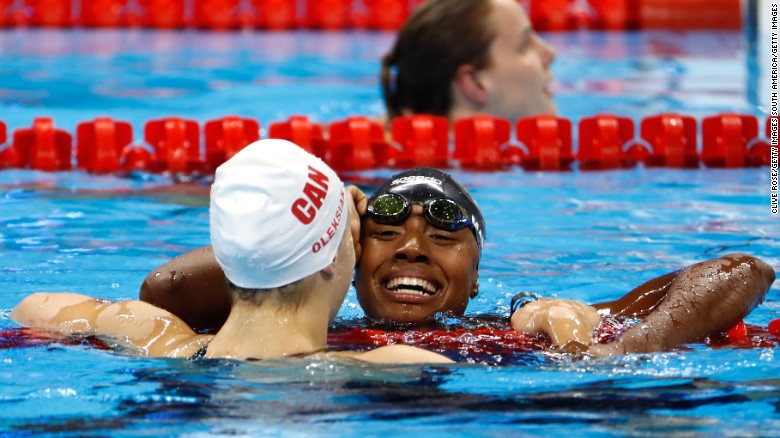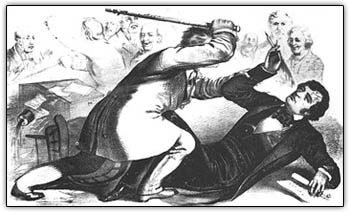The lead up to the 2016 Games in Rio was a hot mess. It was a hot, stinky mess. Whether it was the backdrop the Brazil’s political coup and economic fiasco, its tainted and literally foul water supply, its embarrassingly behind schedule and over budget building and infrastructure projects, or the public health crisis of the mosquito born Zika virus, many countries were not sure if they could safely travel to, let alone compete in Rio. Compound that with Russia being excluded from the games under a cloud of doping allegations and you had the perfect storm for an Olympic debacle of epic proportions for all the world to watch on their television screens and Twitter feeds from home.
Then, about a week into the games, the unthinkable happened. We loved it. We really, really loved it.
From the brutally honest telling of Brazil’s tragic legacy of colonization and slavery in the opening ceremony, to Simone Biles leading her phenomenal team of gymnasts to all around gold, to Michael Phelps shattering a record held for over 2000 years and earning the gold for the fourth straight time, to the electric moment when Simone Manuel celebrated with Canadian teen sensation Penny Oleksiak as she tied with her become the first African American to win gold in the woman’s 100 meter freestyle, we just cannot get enough.
It is as if only for a moment, we are just one people. For the blink of an eye, we are Americans, and maybe even global citizens, as we show grace, dignity and respect to each of our worthy competitors. For just about a week so far, we have let some – just some – of the divisive rhetoric of the political stage and even an iota of the legitimate pain and angst we personally feel become white noise and just fade into the background as we cheer for complete and total strangers. Of course, many of them wear our country’s colors, but so many of the other global competitors whose heart and sportsmanship have so far dazzled and amazed us are from places that if you asked us a week ago, we either hadn’t heard of, may have dismissed, or even maligned.
Some may look at the Olympics as nothing more than the world’s re-enactment of the bread and circus of the Roman Empire. Nothing better suits the fanciful whims of the empire than putting the gladiators in the ring to distract us from the systemic oppression and pain of our real lives. To be honest, this is an argument that I am pretty sympathetic to, at least some of the time. It’s true. If you think long and hard about the atrocities that many nations have done in their history, including and especially our own, the idea of athletes literally wrapping themselves in their country’s flag can turn your stomach.
But then there is the sheer magic of it all. There is something about the Olympics that brings many of us the closest to witnessing an actual real life miracle than almost any other sporting event that I have ever seen. Beyond the pageantry of it all, being able to witness another human being push themselves to and maybe even beyond edge of their God given potential in so many different events is as humbling as it is awe inspiring. I am a grown man who is not really a crier (okay, definitely sometimes), but I cannot tell you how many times I found myself just welling up with tears of complete joy this week. And when I have talked to my friends the next day or see comments on social media, these were tears that we all shed together and this is a joy that we are all experiencing together.
When we see these Olympians, we gaze upon the ineffable splendor and glory of God in each of them and see the best of ourselves. And as God says in Genesis, “It was good. It was very good.”
And yes, people were flipping out because Gabby Douglas was so happy after winning gold with her team that she forgot to put her hand over her heart during the national anthem, and the internet exploded over Michael Phelps’ mean mug and his weird cupping spots, but these are precisely the flashes of momentary insanity that we have grown to expect from the interweb. And yes, Donald Trump did actually say that President Obama “founded ISIS”. But, what else is new? No surprises here. We are, after all, a nation seemingly addicted racial bias and reality T.V.
What I think is surprising us though is how much we missed just being together, even if we are glued to our television screens, just so we can see the very best of who are and can be as a people when we actually chose to love and support one another, and give it our all. Rio only qualifies as bread and circus if it’s purpose is to distract us from the reality of our lives. There’s no denying that this is still a huge part of what is going on here. But I see happening on a deeper level is that seeing these outstanding human beings at their absolute personal best may not cause us to avoid reality, but may inspire us to confront our own.
We live in a world where words like grit, resilience and perseverance are increasingly thrown around more and more each day. But the grit that we are witnessing each night is more than the grit of individual performance. I think that the Olympics inspire us all to remember what we are actually capable of, not in service of some empire, or even just of ourselves, but of each other. To me the most beautiful sports in the Olympics are not the individual sports at all, but the team sports where we are reminded that we are only as strong as our love, support, and encouragement of one another.
So, thanks Rio. This first week has not been bad. Not bad at all.
Of course, we can do without Zika and some of the other drama you brought us, but I think that what we are finding in Rio is something that is more precious than all of the gold medals (though they are great) and even more than the pageantry, pomp, and circumstance. We are discovering in Rio something that we yearn for more than all of our our gadgets, our guns, or the fancy new gizmos of our increasingly interconnected but ever more isolated world. We have come to Rio to discover that there just might even be more to us than the political, ethnic, religious or even nationalistic fault lines of our time. In the tears of joy and the cheers for complete strangers both from home and abroad, we have come to Rio find each other.









